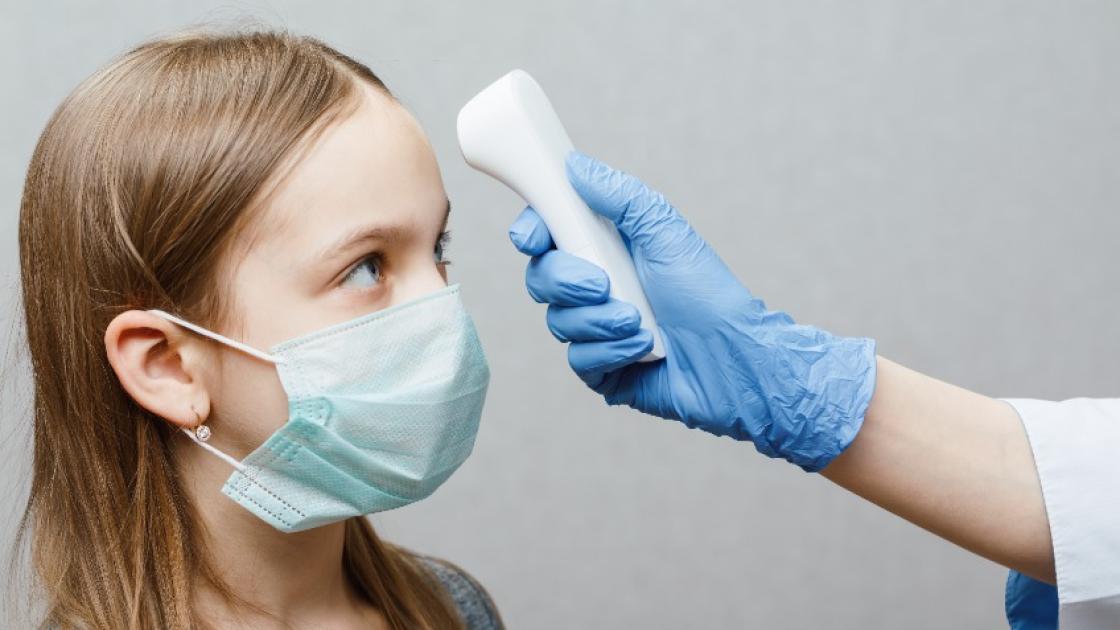
Pediatric fever: When is high too high?
It's normal to feel nervous when your child has a fever. Fortunately, in most healthy children, fevers are rarely dangerous and can usually be well-managed at home with some simple, research-backed strategies. Fevers are actually considered an important part of the immune system response and serve an important purpose in helping kids fight off infections.
However, there are situations in which a fever can indicate a serious problem. Read on to learn more about pediatric fevers, including how to tell when your child's fever is too high and when you should call your pediatrician.
How to measure a fever
Pediatric fever happens when a child's body temperature becomes too high, which can happen due to things like infections, immunizations and even overdressing (in infants).
The typical human body temperature is 98.6°F (37°C). However, it's normal for this number to fluctuate slightly throughout the day depending on factors like activity and hormone levels. To find out whether your child has a fever, it's important to know how to check their temperature.
The most accurate way to check temperature in children younger than 2 is by using a rectal or armpit thermometer. For kids aged 2 to 5, using an armpit or ear thermometer is optimal. For kids older than 5, either an ear, mouth or armpit thermometer is appropriate.
Generally, we define fevers as any temperature reading of 100.4°F (38°C) or higher.
Signs and symptoms of pediatric fever
In addition to having the right tools and techniques to take your child's temperature, you can also recognize when your child has a fever by carefully observing their appearance and behavior. Kids with fever often exhibit signs and symptoms including:
- Warm to the touch
- Red or flushed skin
- Faster breathing rate or heart rate than normal
- Increased sweating
- Atypical behavior (e.g., fussier, quieter or less consolable than usual)
If your child is able to talk, they may also be able to tell you that they don't feel well or complain of symptoms such as headache or chills.
When to call your pediatrician
As mentioned, most fevers in otherwise healthy children are not serious and will get better with the help of some at-home strategies. For instance, you should encourage your child to rest and drink plenty of fluids (to prevent dehydration). Cool compresses and lightweight clothing can help them stay cool. If your child is uncomfortable or unable to drink liquids, you may also decide to give your child fever-reducing medication, such as infant or children's acetaminophen (Tylenol®, for example). Ibuprofen can be given to children over 6 months of age. Just be sure to follow the directions and always measure with a syringe or measuring spoon.
However, there are times when a fever is too high or could indicate a more serious health problem. If your child exhibits any of the following, call your doctor or pediatrician right away:
- Any fever in an infant younger than 3 months old
- A fever that doesn't improve with fever-reducing medication
- A intermittent fever that lasts longer than five days
- Unusual behaviors, such as being difficult to arouse, not drinking enough and not urinating enough
Finally, trust your gut. If you are concerned about your child's fever, call your health care provider. Your provider will be able to advise you about what steps to take next.
Do you have questions about your child's health?
If you have concerns about your child's wellbeing, or would like to establish a relationship with an experienced pediatrician in Southern Illinois, find a doctor at SIU Medicine. Our team is committed to helping local families feel more in control of their health and safety. Call today!




